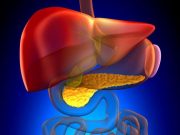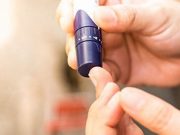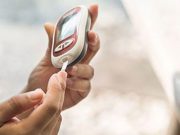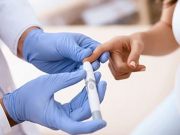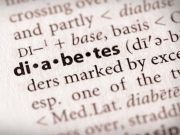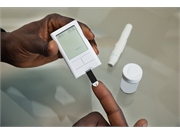Tag: Blood Glucose Monitors
Model Using Routine Clinical Data May Predict Pancreatic Cancer Risk
Findings show promise following diagnosis of impaired fasting glucose
High Endogenous Melatonin Impairs Glucose Tolerance
Lower insulin area under the curve and higher glucose area under the curve observed with late dinner timing
Add-On PPI Therapy May Improve Glycemic Control in Diabetes
However, treatment with proton pump inhibitors is not associated with risk for incident diabetes in the general population
Greater HbA1c Variability May Raise Risk for CVD in T2DM
Severe hypoglycemia may mediate this association
Hyperglycemia, Hypoglycemia Linked to Poor Outcomes in COVID-19
Admission blood glucose is strong predictor of death among patients admitted directly to the ICU
T2DM Links to Risk for Dementia Differ by Type, Glycemic Control
Dose-response association shows higher risk for dementia with HbA1c >87 versus <52 mmol/mol
Shared Decision Making Improves Youth Continuous Glucose Monitor Use
Findings for study involving youth with diabetes, with follow-up two months after initiation
Cinnamon Supplementation May Improve Blood Glucose Control
Findings support research on whether cinnamon can slow progression of prediabetes to type 2 diabetes
Continuous Glucose Monitoring Aids Glycemic Control in Young
And, in older adults, CGM versus blood glucose monitoring reduces time spent in hypoglycemia
HbA1c Levels Lower in Older, Multimorbid Patients With T2DM
Patients with higher comorbidity burden more likely to be treated with insulin for T2DM


